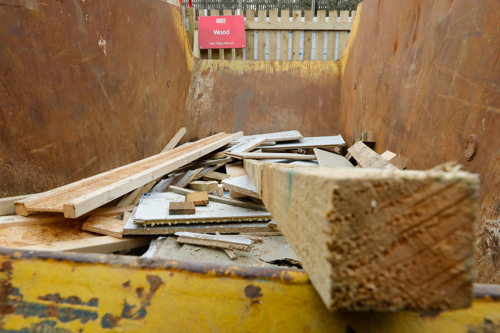Redrow supports the circular economy

18th March 2022
Redrow is proud to support the circular economy, a solution framework that tackles global challenges such as climate change, biodiversity loss, waste, and pollution.
As resources become ever more difficult and expensive to access, it is becoming critical to find alternative means of sourcing and reusing materials effectively.
At Redrow we are building a culture of reuse across the business, with 97% of our construction waste being diverted from landfill in the last financial year.
On site we segregate and crush inert waste, including concrete and rubble generated during the demolition and construction phases. We then reuse the by-product in order to reduce the amount of waste sent to landfill to conserve energy and lessen greenhouse gases.
Last year, a large material recovery operation took place at our Allerton Gardens development in Liverpool, which saw more than 1,400 tonnes of inert waste material processed into recycled by-product. The site had generated a large amount of concrete waste due to the removal of an existing road, which was underpinned with concrete slabs. The slabs were excavated and formed part of the inert waste, which was crushed during the six-day long recovery operation.
The finished by-product was then reused on the development in a range of settings, from creating private driveways, paths and patios. Before any reuse took place, the aggregate was tested in accordance with the WRAP Protocol for Recycled Aggregates to ensure it was of a suitable quality.
The use of recycled aggregates in construction has multiple benefits, including:
- Reducing demand on primary resources and virgin raw materials
- Carbon emissions savings, due to reduced material transportation
- Cost savings as new materials do not have to be purchased and imported
We also have been working in partnership with the Community Wood Recycling Scheme for more than 5 years, to recycle and recover waste timber from our sites. The Community Wood Recycling Scheme is a national network which provides a collection service for excess wood, with the aim of saving resources by reusing and recycling waste timber. The Scheme also operates as a social enterprise, creating opportunities for local people.
In 2021, 518.3 tonnes of wood was collected from Redrow sites and rescued from the waste stream, that’s the equivalent weight of around 50 London Double Decker busses. 10% of our timber was classified as ‘high-grade’ and therefore directly re-used by communities for DIY or building projects, or made into products such as bird boxes and dining tables. The remaining wood has been processed into firewood, kindling, and woodchip helping to displace fossil fuels.
Richard Mehmed, Managing Director of the Community Wood Recycling Scheme, commented “We are delighted to be able to work with Redrow. Collecting wood from Redrow sites has created new, paid jobs and training opportunities for local people, which is helping to make a difference in communities. As well as generating constructive social outcomes, our partnership with Redrow also has a positive environmental impact, as wood is given a new purpose, which supports the circular economy and reduces demand for new materials.”
In addition to recycled aggregates, material management techniques are also implemented, including lime stabilisation. This method is also based on circular economy principals, enabling us to extract the maximum value from materials. At Redrow’s Tabley Park development in Knutsford, approximately 3500m3 of material was treated with lime; a hydraulic binder. The lime was incorporated into excavated spoil materials, which improved its workability and load-bearing characteristics. The process turned unsuitable materials into usable resources, which could have otherwise gone to waste.

